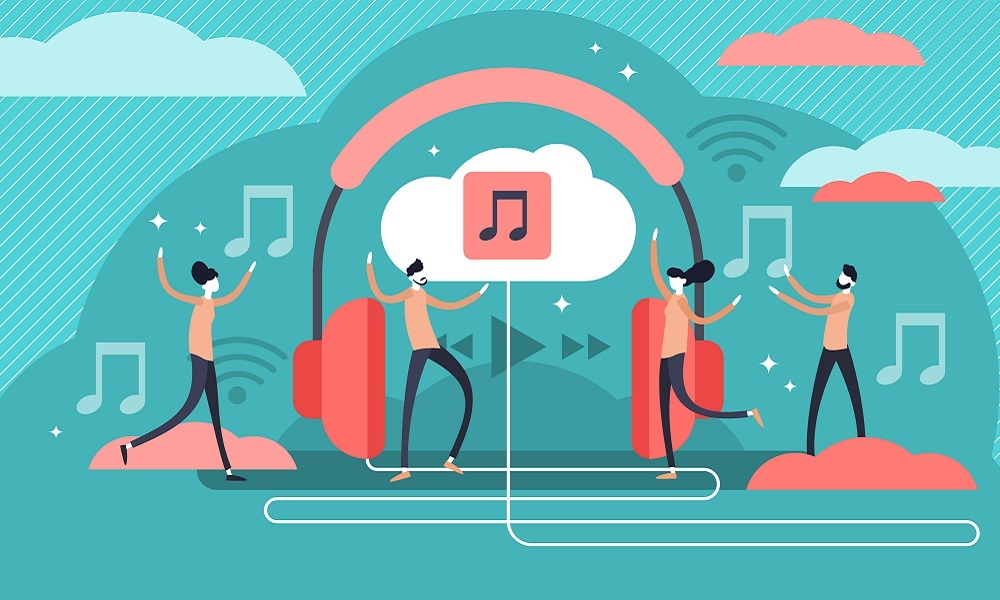Listening to music engages multiple parts of your brain — it can boost your mood and memory, and improve your overall sense of wellbeing.
Music is universal across human populations and all cultures, from the most primitive to the most advanced, make and listen to music. But what is it about music that we enjoy so much? And, what impact does listening to music have on our overall sense of wellbeing?
Dr Margaret Osborne is a Senior Lecturer in psychology and music at the Melbourne School of Psychological Sciences and Melbourne Conservatorium of Music at the University of Melbourne. She says that music is ubiquitous across all cultures and people, but humans are naturally diverse, and therefore our reactions to music are also varied.
‘Our reaction and how music can affect us or move us depends on the person and the situation,’ Osborne tells Wellbeing by Teacher.
‘For example, at any particular time it depends on how the person is feeling and how accustomed they are to listening to music, what their tastes are and what type of personality they have, and also the situation – so when and where they hear the music. Is it at home? Is it in the car? Is it at a concert? Is it day or night? It depends on the acoustics of the venue or the place where you’re listening to music and whether you’re on your own or with others,’ she says.
How music impacts our emotions
Professor Alf Gabrielsson from Uppsala University in Sweden has explored people’s experiences with music in his book Strong Experiences with Music. In the book, several hundred people – women and men, young and old, musicians and non-musicians – share their own experiences with music.
By collating these experiences, Gabrielsson found that music absorbs the listeners and shuts out everything else. ‘It evokes strong emotions and a lot of other reactions, from purely physical responses to experiences of existential and spiritual character. Every account is unique, moving, and bears witness to strong commitment. The experience may lead to the release of pent-up feelings, liberation and inner cleansing, and work as therapy. One can feel confirmed and understood, gain increased self-confidence, and acquire another view of oneself and of life in general. There is also the possibility of a new view of music and what it can mean for wellbeing, health, and quality of life,’ Gabrielsson writes.
Osborne says that this work by Gabrielsson provided a framework for describing people’s emotional responses to music, as well as any physical reactions they may have.
‘Our emotional response, it can be a subjective feeling, it can be a physical feeling like chills or tears, certain parts of the brain are activated, our emotions can be diverse – we can cry and laugh simultaneously at the same piece that we’re listening to. It can motivate us to do things, so music at a certain tempo or beat can be inspiring for movement. It can also have indirect effects on performance,’ she says.
‘Music also activates our nervous system, particularly our sympathetic nervous system, so our heart rate and blood pressure can escalate, and our breathing can increase. This can switch us on but it can also bring about some sad emotions. Feelings can be strong, they can be positive or they can be negative. Part of the beauty of music, like any art form, is it inspires us to feel engaged and be in a certain emotion or feeling a certain emotion.’
Finding enjoyment in music
A study was published last year that asked participants to describe their favourite musical experiences with regard to context and impact. Of the 135 Australians who took part, the majority of favourite musical experiences involved listening to live music and performing.
In the sample, 83.8 per cent of respondents said the social/community aspects of the experience were important to them. They described the joy of singing with others at concerts and the stronger bonds they form with the friends or family with whom they attended. Personal feelings or emotions were also commonly reported – 48.5 per cent of people said they listened to recorded music for mood regulation, and 30.9 per cent described listening to music for the physicality of the live experience, for example mosh pits.
Osborne and her colleagues Dr Amanda Krause and Dr Solange Glasser recently explored the reasons why people value listening to music. The findings will be published soon in the journal Music & Science. Osborne says participants noted that they enjoyed music because of its beauty and the connection they felt towards it.
‘They felt a connection with the music across many genres, it brought enjoyment, it brought an aesthetic beauty into their lives which is something that’s important for wellbeing,’ Osborne shares.
‘We had 319 university students complete this survey. We also looked at being emotionally engaged in the music and that was a really important thing for them, it enabled them to process emotions and reflect on their emotions.’
Osborne says that while music isn’t a biological process that sustains us, it’s a language that many of us can’t live without. ‘Another important reason that we enjoy music (particularly a strong or peak experience in music) is because it triggers the same emotional centres and neurotransmitters or chemicals in our brain such as dopamine and opioids which are involved in biologically rewarding and satisfying stimuli such as food, sex or drugs,’ she says.
Music that evokes memories
Music can take us back to specific moments in time and evoke really strong memories of those experiences. These music-evoked autobiographical memories, or MEAMs, induce an emotional state associated with those memories. Osborne says it’s the intensity of the experiences that makes them so memorable.
‘When we think of the strong experiences of music, those memories are often in parallel with key or very important, significant developmental milestones in our lives,’ she says. ‘For example our first love or when we moved out of home for the first time.’
Osborne says that music can also form part of our identity, and it can take us back to a time when we used our musical taste to represent our personal style, particularly in adolescence.
‘For adolescents, peer and social networks are really important so you use music as a way to connect with other people. It’s not music in and of itself, it’s mapped onto different aspects of who we are as people and what’s important to us – that social connection and bonding with another person,’ she says.
‘Music in itself activates more parts of the brain simultaneously than any other activity. So whether you’re listening to music or actively making music, you’re activating multiple parts of the brain involved in memory, perception and sensory-motor activity.’
Music encourages us to move more
Music can make you want to move and, depending on its intensity and tempo, it can also increase our breathing, heart rate and blood pressure. Osborne says we move spontaneously to music and it can reduce anxiety on two levels.
‘When you move with music you’re engaging in the benefits of exercise – so we know that exercise is beneficial for mental health and moderate exercise improves mood and reduces depressive symptoms,’ she explains.
Osborne adds that when we listen to music and hear the predictable rhythmic structure of the music, our response can be to dance along to it.
‘Particularly dancing with others as well – dancing features in people’s favourite experiences with music. When we’re dancing, it’s social and dynamic and we were moving and we’ve got all these multiple levels of engagement, so it’s physical, it’s social, it’s emotional,’ Osborne says.
‘Our experience with music is multidimensional and our emotional experience with music is nuanced. It’s not simply one experience or one emotion that we experience. It can be multiple emotions that are experienced at the same time and I think that’s what makes it a constant fascination.’
References
Gabrielsson, A. (2011). Strong experiences with music: Music is much more than just music. Oxford University Press.
Krause, A. E., Glasser, S., & Osborne, M.S. (in press). Augmenting function with value. An exploration of reasons to engage and disengage from music listening. Music & Science. https://doi.org/10.1177/20592043211022535
Krause, A. E., Maurer, S., & Davidson, J. W. (2020, 2020/01/01). Characteristics of Self-reported Favorite Musical Experiences. Music & Science, 3, 2059204320941320. https://doi.org/10.1177/2059204320941320
Trehub, S. E., Becker, J., & Morley, I. (2015). Cross-cultural perspectives on music and musicality. Philosophical Transactions of the Royal Society B: Biological Sciences, 370(1664), 20140096.
How do you care for your own health and wellbeing? Do you have a story you’d like to share with Wellbeing by Teacher? Here’s a handy guide on how to get started.


